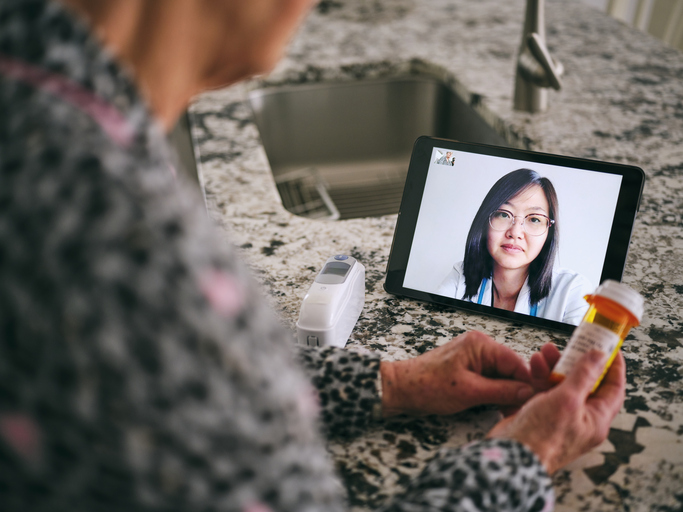Living with Chronic Pain
How the COVID-19 Pandemic Is Affecting Pain Management

The COVID-19 pandemic presents a unique set of challenges for individuals dealing with chronic pain. Physicians’ offices, physical therapy centers, and pain management clinics may be closed. Even if they are open and seeing patients, some individuals may be too susceptible to COVID-19 to attend scheduled appointments. Factors that may place individuals with chronic pain at greater risk include health conditions that weaken the immune system and pain treatment with opioid or steroid medications.
While some physicians are using telehealth to eliminate the risk of exposure, there are typically restrictions on prescribing medications through telemedicine. In addition, filling or refilling prescriptions may be more difficult. Thankfully, allowances have been made to alleviate these challenges during this uncertain time.
Telehealth for opioid prescriptions
Typically, the U.S. Drug Enforcement Administration (DEA) requires that physicians have an in-person appointment with an individual before prescribing an opioid pain medication or other controlled substance through telemedicine. However, on March 16, 2020, the DEA agreed to allow the use of telemedicine to prescribe Schedule II through Schedule V opioid pain medications and other controlled substances without the need for an in-person medical evaluation. This applies to both new prescriptions and refills as long as the following conditions are met:
- The prescription is for a legitimate medical concern.
- The telemedicine appointment is conducted in real time, using both audio and video.
- The practitioner issuing the prescription is following federal and state laws.
This allowance from the DEA helps ensure that individuals get needed medications while practicing social distancing.
Waiving limits on opioid medications
The American Medical Association (AMA) is also asking individual states to waive many requirements that typically surround filling prescriptions for opioid pain medications and other controlled substances. Waiving these requirements can both support social distancing and help reduce stress and hardship for individuals with chronic pain. The AMA recommendations include the following:
- Waiving limits on opioid pain medication and other controlled substance prescriptions, such as limits on the dose, quantity, and/or number of refills
- Waiving drug testing and in-person counseling requirements for refill requests
- Allowing telehealth counseling to meet any prescribing and treatment requirements
- Enhancing home-delivery options of medication for patients with chronic pain
While the AMA suggests implementing these recommendations, each state is responsible for any adjustments to their controlled substance regulations.
Filling other prescriptions
Even for non-controlled substance prescriptions, it may be difficult to regularly access a pharmacy, and pharmacists may have difficulty contacting physicians’ offices (due to many closures) to approve refills. Some states are taking action to reduce these challenges.
For example, the Washington State Medical Commission authorized pharmacists to provide emergency refills. If a medication is not a maintenance medication, a pharmacist can provide a 72-hour emergency refill. For maintenance medications, a pharmacist can provide a 30-day emergency supply even if they are unable to obtain approval from the prescribing physician. The Washington State Department of Health also requested that insurance companies refill a prescription (one time only) even if it is not yet eligible for a refill.
With these allowances in place, pain management is possible even with the limitations and restrictions created in response to the COVID-19 pandemic.


















